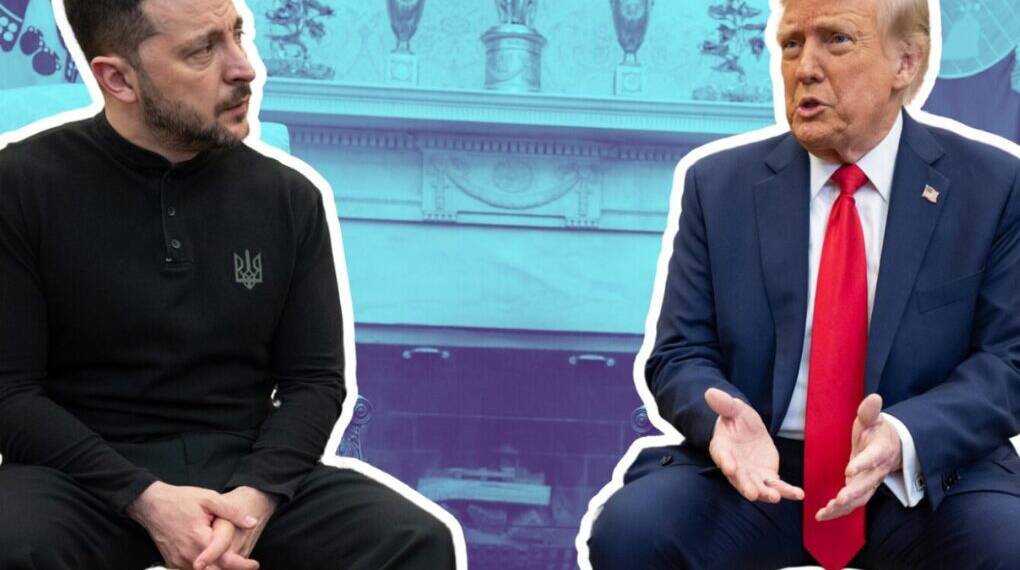Marking a significant departure from his previous non-interventionist approach, U.S. President Donald Trump is reported to have asked Ukrainian President Volodymyr Zelenskyy whether Ukraine could launch strikes deep within Russian territory, including Moscow and St. Petersburg, if supplied with American long-range weapons.
This exchange, first reported by the Financial Times and corroborated by multiple sources, comes at a pivotal moment in the Russo-Ukrainian conflict, reflecting mounting Western frustration with Russia’s intransigence and a changing strategic outlook in Washington.
A Shift from Non-Interventionism?
The July 4 phone call between Trump and Zelenskyy occurred immediately after a separate and reportedly “bad” conversation Trump had with Russian President Vladimir Putin. Sources briefed on the exchange describe how Trump bluntly asked, “Volodymyr, can you hit Moscow? Can you hit St Petersburg too?” Zelenskyy responded, “Absolutely. We can if you give us the weapons”.
Previously, Washington had urged Kyiv to avoid deep strikes into Russian territory, cautioning against the use of Western weapons for such purposes. Yet, Ukraine has ramped up domestic drone and missile attacks behind Russian lines, including high-profile operations against Russian strategic bombers (“Operation Spiderweb”).
Trump’s comments were followed by a meeting between U.S. officials and Zelenskyy in Rome, where a list of potential long-range weapon systems, such as the Tomahawk cruise missile and ATACMS, was discussed.
Due to a freeze on direct U.S. military aid, the transfer of such systems would likely require third-party sales through European allies. Trump later announced additional Patriot air defense missiles for Ukraine but did not confirm approval of longer-range strike systems.
This escalation is mirrored by Trump’s increasing frustration with Putin. Early in his new term, Trump had boasted about his rapport with Putin and claimed he could end the war in “24 hours.”
However, after failed ceasefire negotiations and what he described as disappointing talks, Trump began directly criticizing the Russian leader. He has now threatened harsh 100% tariffs or secondary sanctions on countries buying Russian oil if Moscow does not agree to peace within 50 days.
China’s Strategic Calculations, NATO, and the Taiwan Factor
China has carefully monitored the evolving U.S. stance on the Ukraine conflict, viewing Washington’s discussions of providing advanced weaponry and supporting deep strikes as a catalyst for escalating global tensions.
Chinese officials have repeatedly called for restraint and renewed dialogue, warning that stepped-up Western support for Kyiv, particularly in the form of long-range attack capabilities, not only risks destabilizing Europe but also threatens to draw NATO into a broader confrontation with Russia.
From Beijing’s perspective, such U.S. moves undermine its persistent appeals for a negotiated settlement and run counter to the principle that “external actors must not encourage escalation or fuel the fighting.” At the same time, Beijing’s criticism serves to project itself as a responsible global power and bolster its diplomatic ties with Moscow, while retaining its leverage as a potential mediator in the conflict.
Importantly, China also draws a parallel with the situation in the Asia-Pacific, particularly over Taiwan. Chinese leaders closely watch how NATO and the U.S. respond to Russia’s war in Ukraine, seeing clear implications for any future Taiwan crisis.
Beijing fears that precedent-setting Western intervention in Ukraine could embolden separatist forces in Taiwan and spur calls for increased U.S. and NATO security commitments in East Asia.
Chinese analysts openly warn that continued Western military support for Ukraine may not only push China closer toward Russia, politically, economically, and diplomatically, but could also compel Beijing to upgrade its military posture around Taiwan in response to perceived parallels in foreign interference.
Ultimately, China’s response to the Ukraine crisis is shaped by its desire to counterbalance NATO and the U.S. in both Europe and the Asia-Pacific, recalibrate its strategic partnerships, and reinforce calls for dialogue over confrontation, whether in Kyiv, Moscow, or Taipei. Escalating tensions in Ukraine thus serve as a warning sign for both regions, with Beijing positioning itself as a stabilizing force against what it frames as U.S.-led destabilization.
The Risks and Ambiguity of Trump’s Ukraine Strategy
Trump’s exchange with Zelenskyy, whether a calculated signal, a rhetorical flourish, or a genuine policy pivot, adds significant ambiguity to U.S. strategy. Raising the prospect of Ukrainian strikes on Moscow or St. Petersburg carries enormous risks:
It forces Russia to contemplate nuclear scenarios or escalate retaliation.
It may fray Western unity, exposing rifts both within NATO and between the U.S. and its allies.
It calls into question the U.S. commitment to escalation management and adherence to the distinction between battlefield and civilian targets.
At the same time, credible threats can, in theory, pressure Moscow towards negotiations—yet they rely on delicate messaging and operational control, both of which may be lacking with such publicly aired hypotheticals.
Trump’s suggestive queries mark a dramatic and highly controversial moment in U.S. foreign policy. Despite clarifications that he is “merely asking questions,” the very act of floating such scenarios with Ukraine’s leader sends potent signals to Moscow, NATO, and the world. As China amplifies its calls for de-escalation, global tensions risk rising even further.







